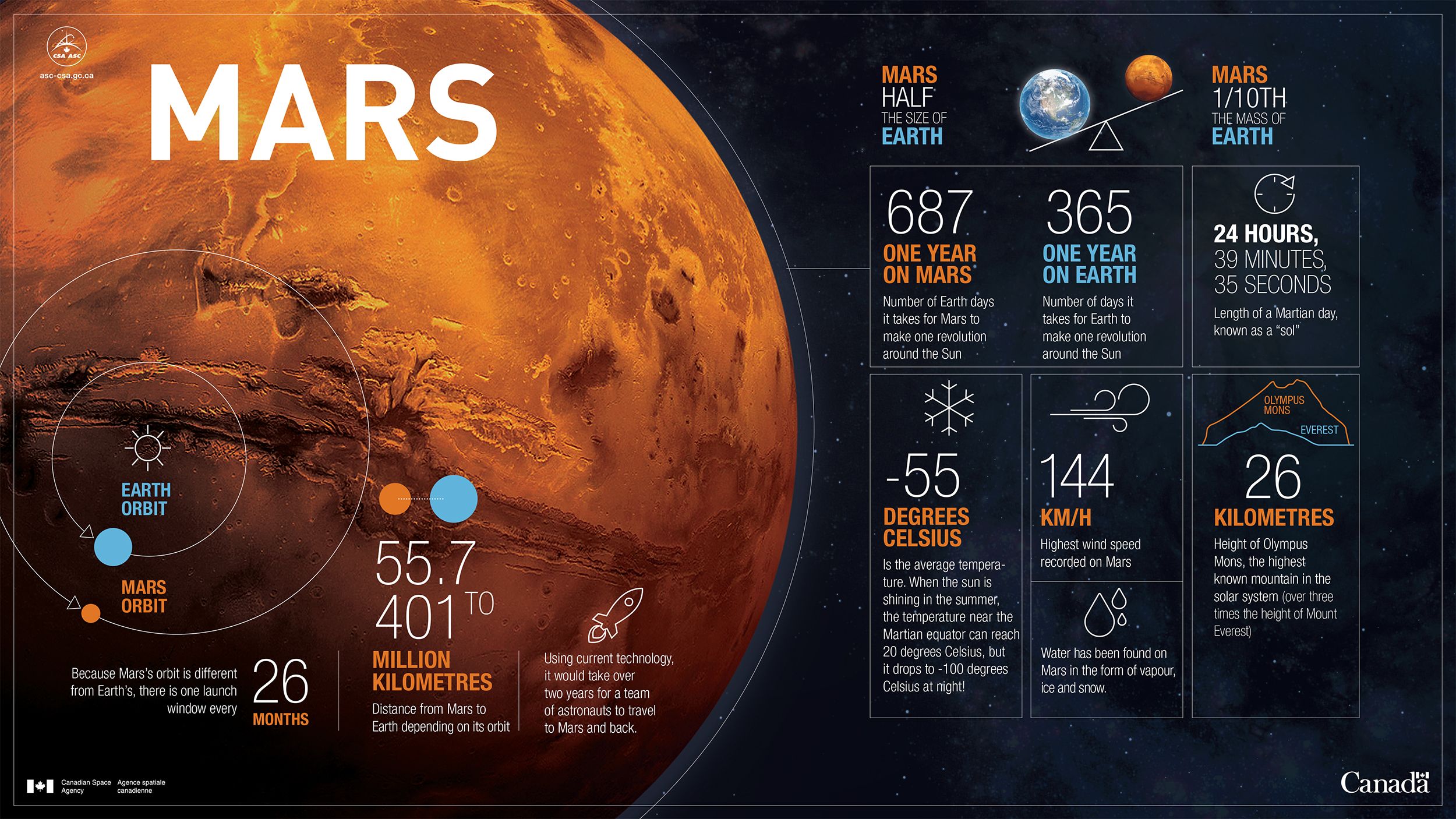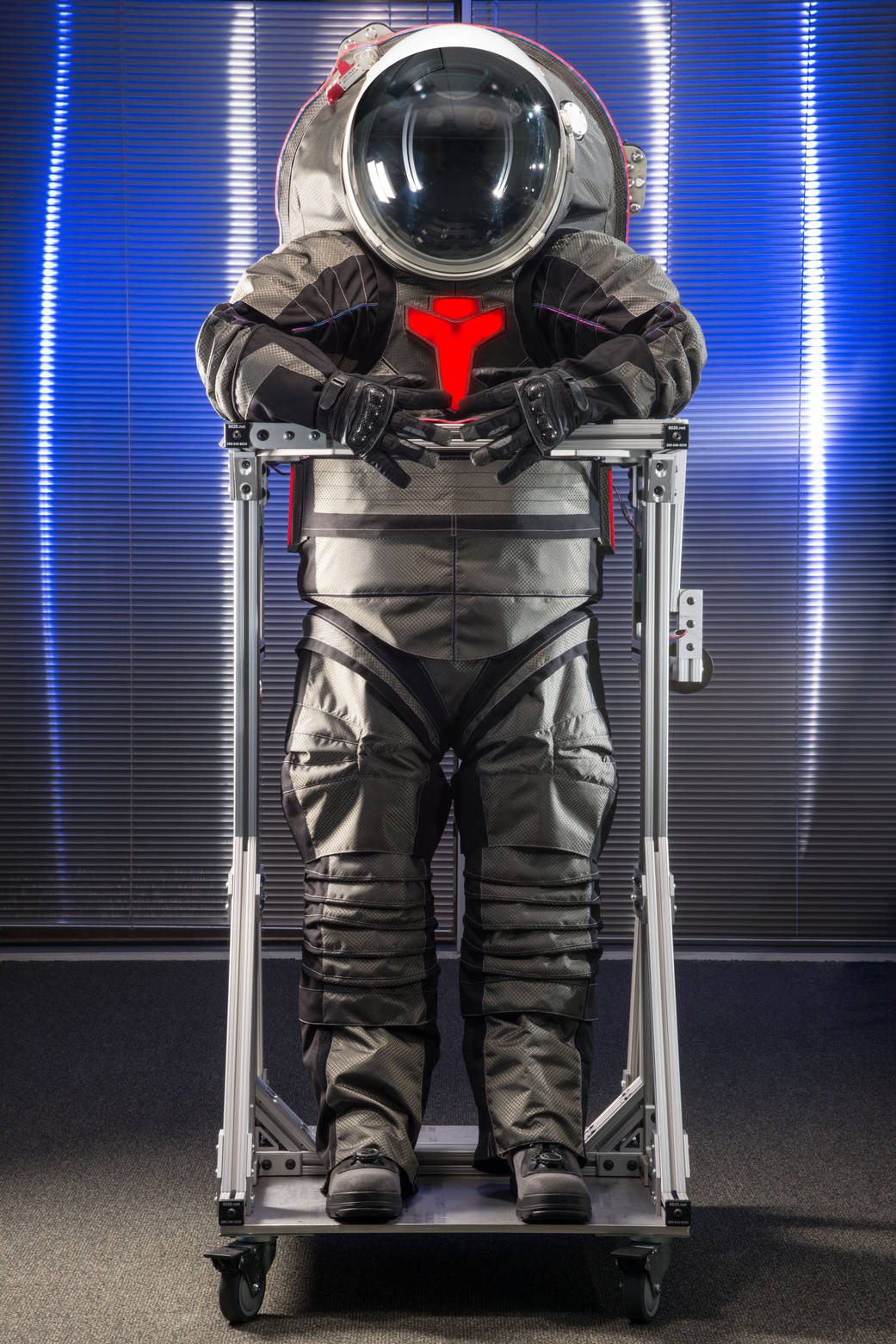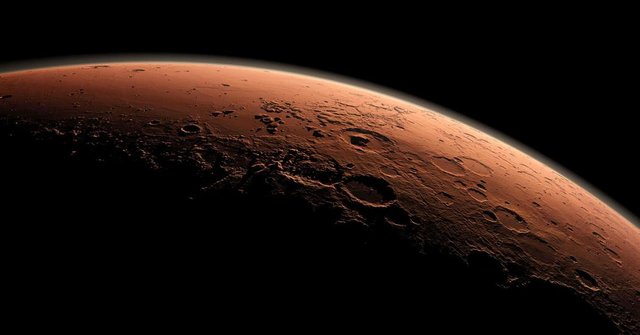"Houston, we have red rocks": Humanity and Mars
In 1969, humanity took a truly giant leap forward and set foot upon the behemoth that shines its brilliant blue-ish white glow upon our faces at night. Getting a human on the moon was an accomplishment like no other. And one that will be difficult to top, very difficult actually.
Getting to Mars, the one planet other than Earth that humans could walk the surface of for more than 30 seconds without dying, would be a major historic moment for sure. But could it top going to the Moon?
Sure, getting to Mars is more difficult, and it would be the first time we put humans on another planet. But the moon landing was the first time we ever put humans on anything that wasn't Earth. Not to mention, we have rovers rolling along Mars' surface as we speak. The difference this makes is huge, when we went to the moon, nothing had been there before that could gather information and make discoveries, (Nothing too advanced anyway), whereas now, Mars is just about as mysterious as any casual Earth mountain range. As in, not at all.

As you can see, the nature of Mars is anything but a mystery.
So what is the point in going there? This is the question we must ask before pumping billions and billions of dollars into a Mars mission. And it's not an easy question to answer.
One simple idea is that going there is worth the achievement, the simple fact that humanity finally puts a few of its own on another planet is enough to make it all worth it. Some oppose this opinion however, such as Buzz Aldrin, who once said he'd like to see humanity go to Mars, but he believes we should actually do something when we get there. Perhaps stay for a few days. Set up some kind of base-camp on Mars' surface. These are shared opinions of Elon Musk, who has plans to colonize Mars within the next few decades.
But moving away from all reasoning and into the science, what are the difficulties of getting there, why is it any more complicated than what we did with the Moon?
Well life can't be that simple for us, the universe clearly doesn't want things to be easy. So we face quite a few boundaries when concerning a Mars mission. One such boundary is just. . . distance.
Mars is far away, and a manned ship going there would cost more than any other rocket fuel cost before, it would take about a year at the shortest to get there. So the fiscal barrier is rather strong on this one. NASA is tax funded, but SpaceX, (Elon Musk's company), it private and gets no government funding. So NASA is at the mercy of the government allotted cash, and SpaceX is limited by itself.
Mars does not have breathable air, the oxygen per cubic unit of air is less than 2% of what lies at the top of Mt. Everest. The only way to get oxygen would be by tapping it from the ground. This is one helping hand the natural planet has given us. We can tap into the "soil" of Mars and retrieve stored oxygen by the Kilo-tons. But once again, it's costly, and requires careful research, (we wouldn't want them to run out of oxygen would we).
One other thing to consider is the weather. Mars is no stranger to dust storms and tornado's. However none of these are particularly strong. For the most part, Mars' dust storm winds reach 15 Mph tops, but this is still a factor due to how oxygen is stored. Oxygen storage uses thin plastic sheets to contain the breathable air. The winds on Mars poses a threat to the integrity of this structure because it could cause the side flaps to rip seals if they are blown in and out with to much force. So a special glue is necessary to form a flexible grip with the plastic and the poles it is attached to.
Depressurization, yet another problem, would stack the cost of building the base camp as it requires airlocks. The atmosphere is very low in pressure, opening a door require two layers, one airlock, then the suits people would wear going outside would need pressure locks as well.
And bear in mind that if just one of these things malfunctions, someone could die in seconds. Potentially ruining the chances for future exploration due to massive shift in public opinion.
One interesting suggestion in regards to long term survival on Mars is to in fact detonate "Thermonuclear Weapons" at each of its polls.
First made by Elon Musk himself, the idea is that the Nuclear heat would melt the ice that's trapping CO2 under its layers. This greenhouse effect would quickly warm up the planet which is certainly helpful when the average temperatures don't go much higher than Antarctica in the winter.
But opponents argue that this still would take centuries as the upper atmosphere would need to lose its ionized particles from the radiation.
But in the end, the truth is we don't have one answer.
Some people still stand by the idea that Humanity never should go to Mars at all, some believe we should get there by all means necessary. Some are concerned for the people going there, some for the things that may have been there all along.
Let's just be sure of one thing, if we do get there, let the rovers know how much we appreciate their work.
Images origins:
http://www.sciencealert.com/nasa-s-released-a-prototype-of-the-spacesuit-astronauts-will-wear-on-mars
http://www.asc-csa.gc.ca/eng/astronomy/mars/
https://www.ted.com/talks/elon_musk_the_mind_behind_tesla_spacex_solarcity
https://www.ted.com/playlists/414/what_s_the_big_deal_about_mars



Congratulations @astronomyizfun! You have completed some achievement on Steemit and have been rewarded with new badge(s) :
Click on any badge to view your own Board of Honnor on SteemitBoard.
For more information about SteemitBoard, click here
If you no longer want to receive notifications, reply to this comment with the word
STOPBy upvoting this notification, you can help all Steemit users. Learn how here!
You forgot the first real problem with not even a theory as solution yet: Our bodies are not designed to perform space travels
So, we need to figure out a way to emulate real gravity, or tear each space explorer's eyes out to save their brains.
I was considering talking about centrifuges, as connection to this. However I plan on creating another article in a while about orbital physics, in which I'd mention centrifugal force and this concept of artificial gravity.
Hey, did you get my text message?
Yee